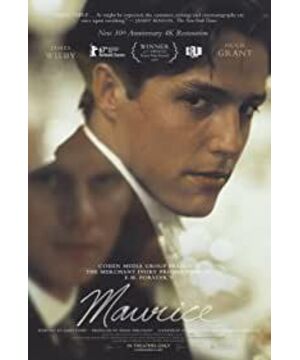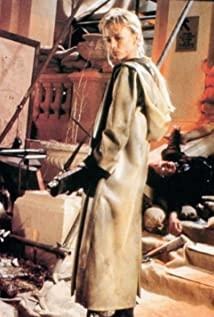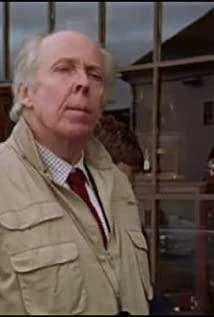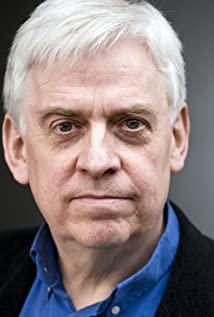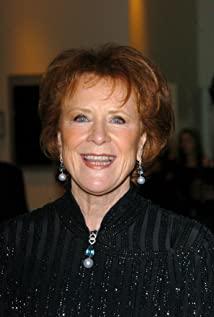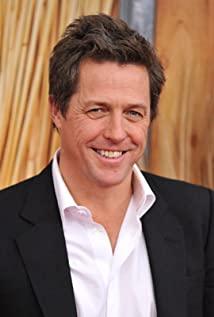Cliff's beautiful face and his sharp words, in Morris's opinion, may have been a yearning as early as the first sight. The friendship that the two later cultivated was, no, not so much a friendship, but a relationship of a different nature for the two—Morris may have developed a friendship (a self-righteous friendship) with just yearning and a little admiration, but K. Reeve (befriended Wesley so early! Made Wesley so gay!) after polite friendship was blinded by the uninhibited unbridled enthusiasm of the unrepentant Morris, who With tentative and cautious interactions, Morris is the same as before. What happened next is easy to understand, in the bedroom, after the holiday, the two meet again (finally!), Morris's warm and gentle touch, stirring up the urge to suppress doubt in Cliff's heart ("He loves me. !" would he think). The budding love in Cliff's heart, in his opinion, was only ignited by Morris's constant teasing and enthusiasm.
My understanding of the movie above is based on my guesses about the characters of the two. In this story, Cliff has always been a talented and socially recognized man. Wesleyan's circle gathering has always seen only three people. It can be said that the circle was built by Cliff and Wesley. So what are the conditions of being a founder? Obvious: Talented (shown and acknowledged), rebellious (neither non-Christians) and wealthy (noble unquestionable status ensures they are not spurned and easily questioned). Cliff seems to have been enjoying this slightly controversial but must say envied or noticed image. Moreover, he is relatively relaxed at school, and he has no industry, family business, social status, or future that requires practical actions to be responsible for (what a youth he has to show off under the protection of the school!). Cambridge's life did not lead to the end of the two like the life of the society, but from the former we can still see the cautiousness, cowardice and vanity of his nature (he has only a rebellious maverick image without the courage to bear it.) lasting pressure and condemnation). And Cliff, like a late-ripening teenager, entered the secret world of Wesley and Cliff with a child-like fearlessness and unavoidableness, and a little curiosity and ignorance (Wesley's existence in this movie was originally a Pioneer and Symbol: Because the two of them fell in love, because the two of them broke up). Before falling in love with a person, he never had a desire to control his life-because of a love that was tabooed by society but acknowledged by himself, he discovered how persistent and brave he was (even eventually ruined his comfort in society!) . He is honest, longing for the irresponsible and new angle ridicule of non-Christians, so he stopped going to church, doubted the love between men and bluntly rejected Cliff, and found that he actually loved him, so he climbed the window and sent one kisses, believing that he is ill after being rejected and preached by Cliff's sudden turn (symbolism and the fall of pioneer Wesley's!) and believing that he is ill - yet it is this seemingly fearless honesty that makes him So scared to lose Cliff! And because of this fear, he was led by Cliff, witnessing the trajectory of his life with a kind of sadness like resignation, but he couldn't just be a bystander.
Who loves whom more? This question is pointless. The standard of love is different and cannot be measured. But the two are in love in the movie. After watching the movie for a long time, what I will never forget is Morris on the grass asking "Can't you kiss me?". What an obvious implication: Cliff's constraints kept the two from crossing the hurdle of sex in the end, and in the absence of that, Cliff had left himself a high-sounding retreat. Asexuality, implied in these two: We were just young, I don't need to be responsible for you. And while the people who have sex in the movie end up together (Cliff and his wife, Maurice and Sand), what does sex represent in the movie? combine? At the station, Morris dropped out, and Cliff graduated. What else is there except nostalgia? Doubt or not, and worry about Maurice's bravery without fear of consequences. The ending of the two has given a hint here: Cliff looks at Morris who is drifting away - the one who really chooses to leave is Morris.
I have sympathy for both - both lost this opportunity to be in love. Who is happier? Who has a better ending? The movie chooses to end with Morris with Sand and Cliff with his wife, which is a hard-to-judge pause. The breakup of the two is due to one party's disdain for homosexuality and his persistence in social affirmation (this is Cliff, who is eager for fame!) and the other party's recognition of homosexuality and persistence in love (Mo who has the courage to accept fate and the courage to accept love) Rhys!), in the end, both of them got what they wanted (Cliff's reputation and Maurice's partner), although Cliff's eyes were sad, but what he lost was that he didn't dare to go Just got Morris? Or maybe this kind of taunting is not suitable for the last of him - Cliff, who suspects Morris has a girlfriend, rushed to Morris's room recklessly to give him a kiss and ask for a kiss, he wanted him to love him, although his mouth "That's great" - had he come to believe it by then? At that time, Morris was delighted but confused to see Cliff's gaffe, so he readily admitted (for Cliff's "jealousy"?), but it was himself who was really miserable and confused after he left (the repressed was denied His love still exists!)—and at this moment, there appears Sander who loves him and understands him (the boldness and indifference that is characteristic of the lower class), releases him with sex, and gives him the straightforward pleasure of calmness . A two-person story becomes a three-person story, which becomes a two-person story. Can it be said that Sander is the last happy person? He can survive (even though he didn't go to Argentina but still has a job), he can love (if he has a partner, he can love boldly), and he can be free (no class burden, no so-called promotion and demotion and onlookers).
The film is full of hints. The venereal disease part may be interesting, Morris said he had the same disease as Cliff, only to find out that Cliff was contemptuous and veiled telling the doctor that it was a venereal disease, Morris' honesty (sad honesty, in Cliff's poor Maurice in the movie) still made him tell the truth to the doctor. The two different attitudes embodied here have created two different lives. The mustache in the film is equally interesting. When Morris and Cliff were together, Morris had a beard; when the two broke up, Cliff had a beard (beards are specific to men, is there a "role" in gender?). And the sweethearts were all beardless (Maurice and Cliff in Cambridge; Maurice and Sand later). Does a beard have other symbolic meanings besides age? If the beard represents maturity and stability in life, then it can be used to explain the bearded Morris (who is unaware of the crisis and who naively thinks he can stay alive like this) and the bearded Cliff (who escaped the crisis) and skepticism, has been recognized by the society). I don't know if the director is in a homosexual relationship, and the cute and frank person who loves is immortal (image without beard), is this a kind of beautification and exaggeration (people get old but love makes them young)? It's just me thinking too much. I just remember the last scene where the bearded Cliff looks out the window and the bearded Morris (real, Cambridge) leaves.
View more about Maurice reviews


